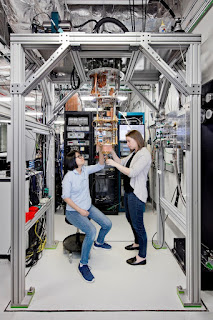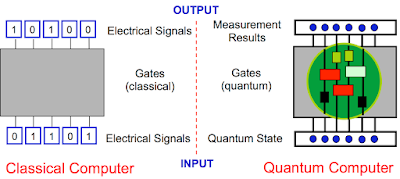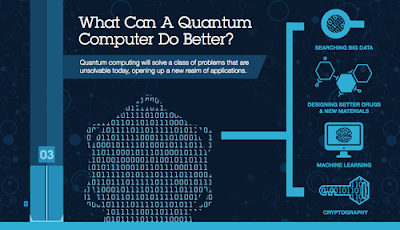Twitter Feed
US Army Cloud Computing Class at Ft. Gordon, GA
A few weeks ago I had the distinct pleassue of teaching yet another US Army cloud computing class. This time the venue was Ft. Gordon, GA and the students definitely…
78 Agency Services Identified for Cloud Transition
The Office of Management and Budget recently released a list of 78 projects slated for transition to cloud over the next year. The most common application, according to a FierceGovernmentIT,…
NGA Sets GEOINT Strategic Direction with Earth Builder
Last month Google and the National Geospatial Intelligence Agency started sharing details about their “GEOINT on Demand” collaboration. The project, named Earth Builder, was built specifically to enable NGA to…
Teleology Systems Introduces CloudeFX at DoDIIS
Next week at DoDIIS, NJVC will be showcasing a few of our government cloud computing partners. One of the most exciting of these is the Cloud Service Orchestration Framework by…
Cloud Computing Highlighted at DoDIIS 2011
Are you going to DoDIIS? Schedule for May 1-5, 2011 in Detroit, Michigan, the conference highlights the Defense Intelligence Agency’s (DIA) commitment to developing and maintaining secure and reliable networks for…
Washington DC a Cloud Computing Trendsetter!
A TechJournal South article last week named Washington, DC as a leading trendsetter in cloud computing. Citing a Microsoft sponsored survey, conducted by 7th Sense research, D.C. was highlighted as particullarly receptive…
Melvin Greer Cited by IBM for Cloud Computing Innovation
Congratulations to my good friend Melvin Greer for being awarded IBM’s first ever ACE Award!! “Melvin Greer, Lockheed Martin Senior Fellow has won IBM’s first ever Awarding Customer Excellence (ACE)…
“GovCloud: The Book” Launched at National Press Club Event
As many of you know, today marked the official launch of my first book – GovCloud: Cloud Computing for the Business of Government. Today’s venue was the National Press Club…
“Cloud Musings on Forbes” Launched!!
Today I published my first post on Forbes.com!! At the invitation of Bruce Upbin, Forbes.com editor, I will be contributing posts monthly. I see this not only as an honor,…
Tech America and INSA Form Cloud Computing Advisory Groups
Last week TechAmerica announced the formation of a “cloud computing commission” to advise the White House on the current plans to steer more than $20B worth of IT services toward…
- The release of a new API (Application Program Interface) for the IBM Quantum Experience that enables developers and programmers to begin building interfaces between its existing five quantum bit (qubit) cloud-based quantum computer and classical computers, without needing a deep background in quantum physics.
- The release of an upgraded simulator on the IBM Quantum Experience that can model circuits with up to 20 qubits. In the first half of 2017, IBM plans to release a full SDK (Software Development Kit) on the IBM Quantum Experience for users to build simple quantum applications and software programs.
The IBM Quantum Experience enables anyone to connect to IBM’s quantum processor via the IBM Cloud, to run algorithms and experiments, work with the individual quantum bits, and explore tutorials and simulations around what might be possible with quantum computing. Since its launch less than a year ago, about 40,000 users have run over 275,000 experiments on the IBM Quantum Experience. It has become an enablement tool for scientists in over 100 countries and, to date, 15 third-party research papers have been posted to arXiv with five published in leading journals based on experiments run on the Quantum Experience.
 The broad availability of quantum computing capability could prove to be a significant blow to current data encryption practices. In 2015 the US National Security Agency actually advised US agencies and businesses to prepare for a time when the cryptography protecting virtually all e-mail, medical and financial records, and online transactions would be rendered obsolete by quantum computing. The US National Institute for Standards and Technology (NIST) is also running a competition to spur work on post-quantum algorithms.
The broad availability of quantum computing capability could prove to be a significant blow to current data encryption practices. In 2015 the US National Security Agency actually advised US agencies and businesses to prepare for a time when the cryptography protecting virtually all e-mail, medical and financial records, and online transactions would be rendered obsolete by quantum computing. The US National Institute for Standards and Technology (NIST) is also running a competition to spur work on post-quantum algorithms. - Drug and Materials Discovery: Untangling the complexity of molecular and chemical interactions leading to the discovery of new medicines and materials;
- Supply Chain & Logistics: Finding the optimal path across global systems of systems for ultra-efficient logistics and supply chains, such as optimizing fleet operations for deliveries during the holiday season;
- Financial Services: Finding new ways to model financial data and isolating key global risk factors to make better investments;
- Artificial Intelligence: Making facets of artificial intelligence such as machine learning much more powerful when data sets can be too big such as searching images or video; or
- Cloud Security: Making cloud computing more secure by using the laws of quantum physics to enhance private data safety.
This content is being syndicated through multiple channels. The opinions expressed are solely those of the author and do not represent the views of GovCloud Network, GovCloud Network Partners or any other corporation or organization.
( Thank you. If you enjoyed this article, get free updates by email or RSS – © Copyright Kevin L. Jackson 2017)
Cloud Computing
- CPUcoin Expands CPU/GPU Power Sharing with Cudo Ventures Enterprise Network Partnership
- CPUcoin Expands CPU/GPU Power Sharing with Cudo Ventures Enterprise Network Partnership
- Route1 Announces Q2 2019 Financial Results
- CPUcoin Expands CPU/GPU Power Sharing with Cudo Ventures Enterprise Network Partnership
- ChannelAdvisor to Present at the D.A. Davidson 18th Annual Technology Conference
Cybersecurity
- Route1 Announces Q2 2019 Financial Results
- FIRST US BANCSHARES, INC. DECLARES CASH DIVIDEND
- Business Continuity Management Planning Solution Market is Expected to Grow ~ US$ 1.6 Bn by the end of 2029 - PMR
- Atos delivers Quantum-Learning-as-a-Service to Xofia to enable artificial intelligence solutions
- New Ares IoT Botnet discovered on Android OS based Set-Top Boxes




